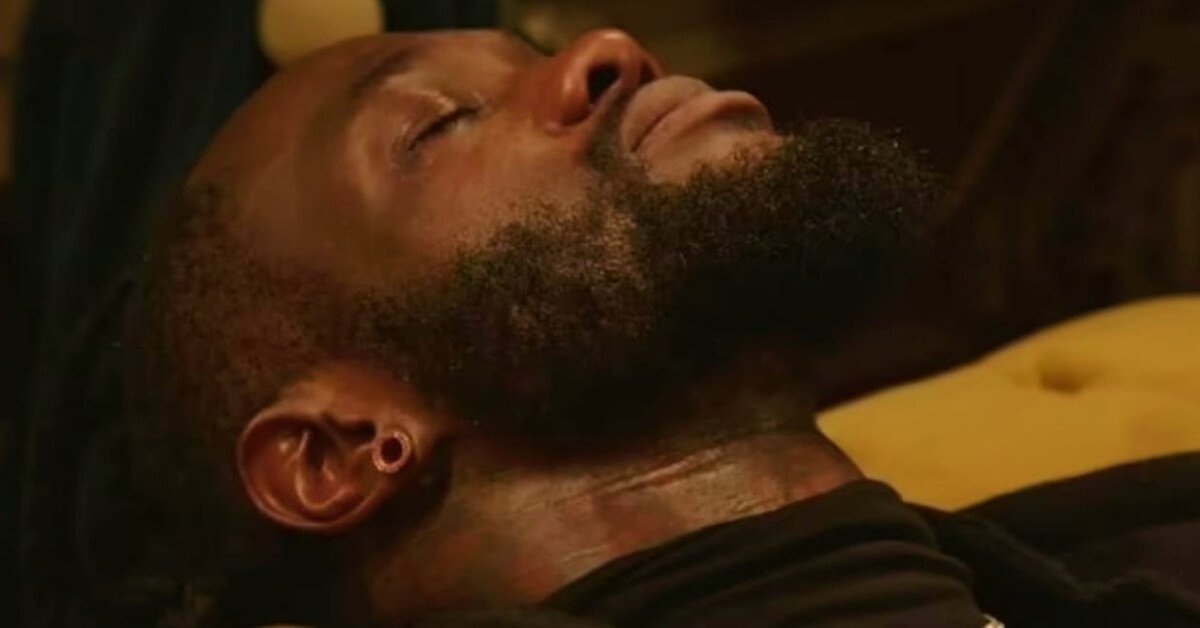Curiosity is piqued among fans of “The Traitors” as they wonder about the unexpected departure of Deontay Wilder.
The famed Olympic bronze medalist boxer brought his strategic prowess into the mansion, but something drove him to leave the game prematurely.
So, what led to his emotional exit and departure from the show? It’s time to delve into the details to uncover the truth behind Deontay’s departure.
In Season 2, Episode 4, Deontay led the charge to banish Maksim Chmerkovskiy, convinced he was a Traitor. However, when Maks revealed himself as a Faithful, it deeply affected Deontay. He expressed his emotional turmoil, stating, “I can’t do this no more.” Deontay’s sincerity clashed with the game’s brutality. Unable to compromise his values, he left.
How Did Deontay Exit the Traitors?
In a surprising turn of events in Season 2, Episode 4 of “The Traitors,” Deontay Wilder, the renowned professional boxer, unexpectedly exited the game.
Following the previous night’s Round Table, Deontay chose to quit the game, marked by a red “X” on his portrait. But why did he leave?
In a pivotal moment during Episode 3, Deontay’s emotions reached a crescendo when he led the charge to banish Maksim Chmerkovskiy, convinced he was a Traitor.
However, when Maks revealed himself as a Faithful, it deeply affected Deontay. This intense moment foreshadowed Deontay’s decision to quit the game, as revealed by host Alan Cumming at the start of Episode 4.
What Caused Deontay to Leave the Traitors?
Amid the gripping drama of “The Traitors,” Deontay Wilder’s exit came as a shock to many. Known for his straightforward nature and competitive spirit, Deontay entered the game with a clear strategy.
However, as the tension escalated and alliances shifted, Deontay found himself grappling with overwhelming emotions that ultimately led to his decision to leave the show.
After he was wrong about Maks, Deontay expressed his inner turmoil to host Alan Cumming, saying (via Style Caster):
“I don’t know how much more I can go on. My heart. I can’t do this no more.” This candid revelation sheds light on the intense emotional toll the game took on him.
Delving deeper into Deontay’s decision, it becomes evident that the complexities of the game triggered unresolved childhood trauma for the boxer. Deontay confessed:
“This game was definitely harder than I thought it would be…it really struck some childhood trauma from me that I didn’t expect.” The unexpected emotional challenges pushed Deontay to confront his past in ways he hadn’t anticipated.
Reflecting on his experience, Deontay highlighted the struggle of navigating friendships and suspicions within the game.
Recounting his bond with fellow contestant Maks Chmerkovskiy, Deontay revealed the internal conflict he faced when suspicions arose, saying:
“To be able to bear false witness against him when I really felt that he was [a traitor]…You really have to have a watchful eye on things.”
This inner turmoil further fueled his emotional turmoil within the game. Throughout his journey on “The Traitors,” Deontay’s compassionate nature clashed with the demands of the game.
As a self-proclaimed “people’s person,” Deontay found it increasingly difficult to cause pain to his fellow contestants. In a heartfelt confession, he admitted, “I’m a people’s person, and I love people…we all need each other.”
This internal conflict between his innate empathy and the ruthless nature of the game likely contributed to his decision to leave.
In the end, it appears that Deontay’s genuine connections and compassionate demeanor clashed with the cutthroat dynamics of “The Traitors.”
Unable to reconcile his values with the demands of the game, Deontay made the difficult choice to depart from the series, leaving fans and fellow contestants alike stunned by his emotional exit.
The Traitors is streaming on Peacock.
As we ponder Deontay’s journey on “The Traitors,” questions linger about the toll of reality game shows on contestants’ mental and emotional well-being.
How can the intense pressures of such competitions impact individuals beyond the screen? And what lessons can be learned from Deontay’s brave decision to prioritize his mental health?
Let us know your thoughts in the comments below.

